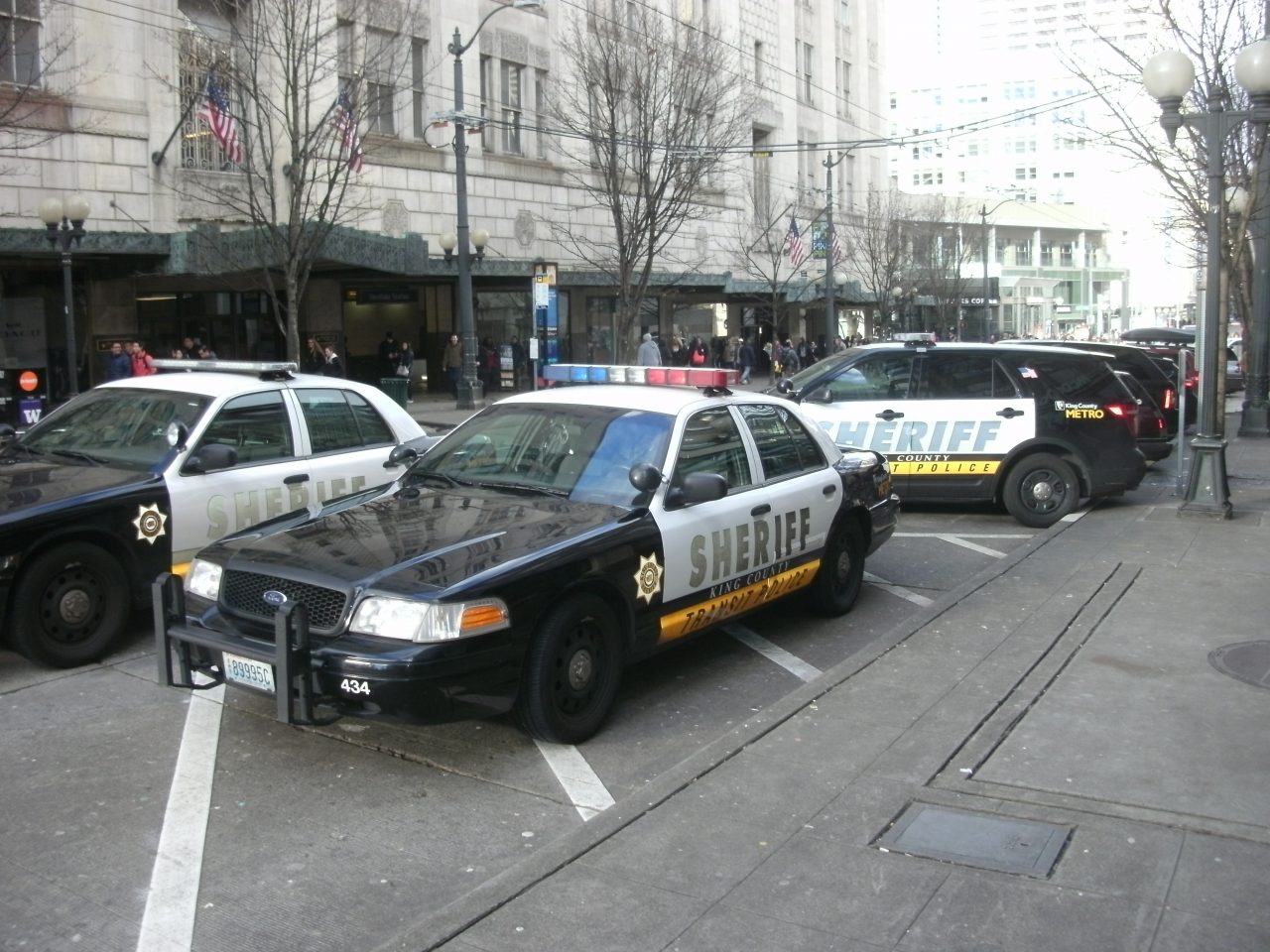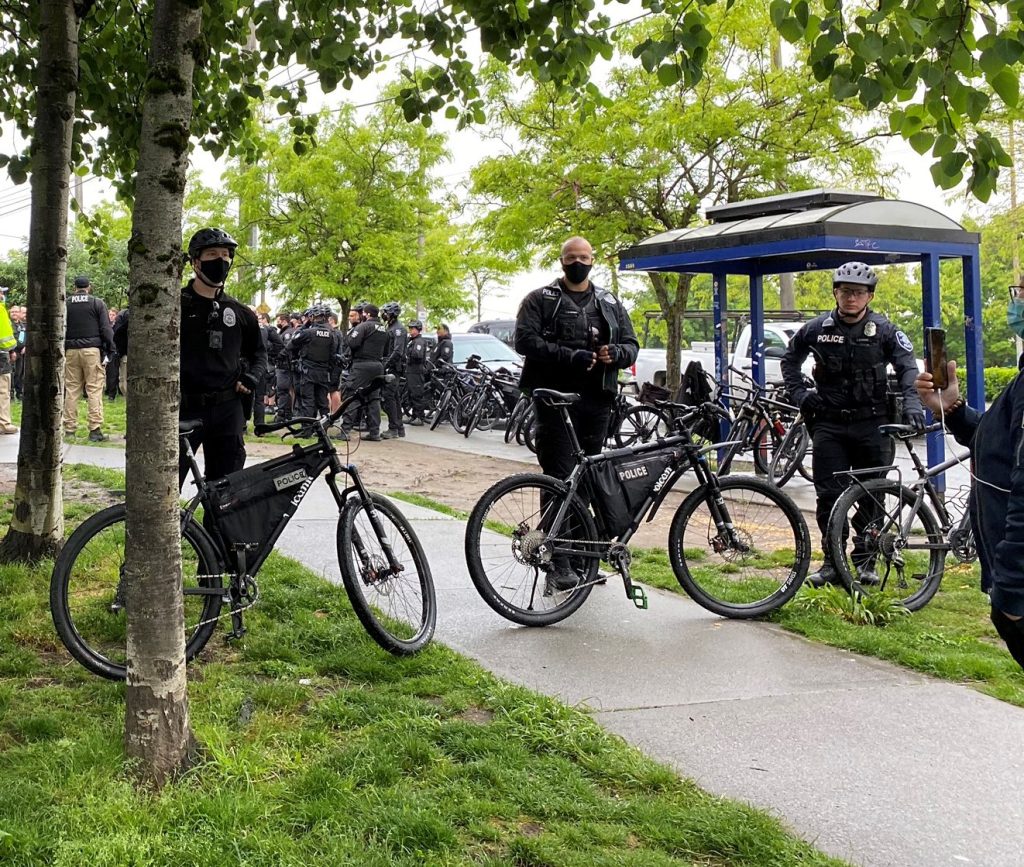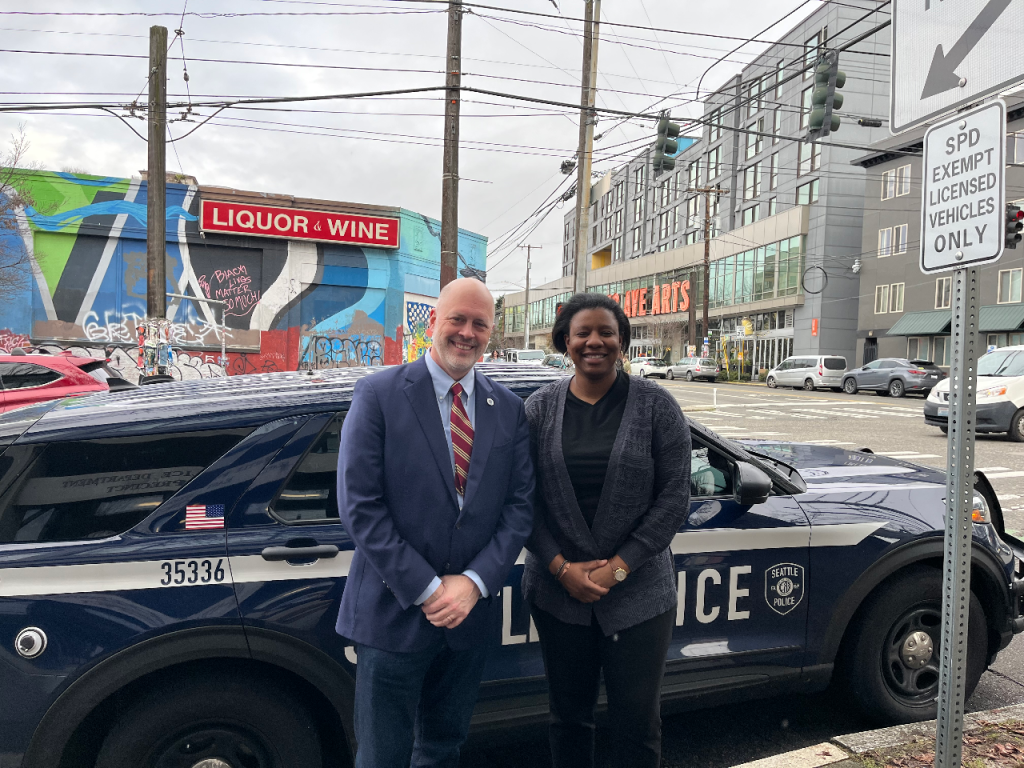
When it comes to homelessness, substance use disorder, and sex work, Seattle is rehashing the same old arguments, emboldened by Grants Pass ruling.
This June, the bombshell of the Supreme Court’s Grants Pass decision dropped with the revelation that arresting or fining unhoused people sleeping in public places who haven’t been offered alternative shelter is, in fact, legal. This overturned prior precedent from the U.S. Court of Appeals for the 9th Circuit that held that blanket homelessness bans were unconstitutional because they entailed cruel and unusual punishment.
Only a month prior to this decision, King County’s latest Point in Time Count reported the largest number of homeless people ever recorded in our region. With more than 16,000 people estimated to be experiencing homelessness, the report found the local homeless population has increased by 23% since the last count took place in 2022.
The report also found that 19% of those unhoused in the area are Black, while only 6% of King County’s total population is Black, highlighting the racial inequities within the homeless population. 35% of the unhoused population said they suffer from substance use disorder.
Seattle City Attorney Ann Davison wrote a “friend of the court” brief in support of Grants Pass. In response to the Supreme Court’s ruling, she released a statement saying, “Today’s ruling makes it clear that determining policy to address homelessness is a task for locally elected leaders.”
Seattle Mayor Bruce Harrell said the decision would not impact the way Seattle’s Unified Care Team operates. “Our approach to resolving encampments is based on data, best practices, and our values – and the Supreme Court decision will not affect that approach,” Harrell said in a statement.
The city removed 2,827 encampments in 2023, up from 922 encampment sweeps in 2022, according to Real Change. The United Care Team has a budget of $26.6 million for 2024.
Real Change also reported that 99% of sweeps in 2023 were obstruction sweeps, meaning the City is not required to give three days notice nor offer shelter before the sweep. The City’s homelessness dashboard shows 1,535 shelter units currently open for use in Seattle, well below the city’s estimated homeless population.
“It’s hard to tell if the Grants Pass decision made Mayor Harrell’s sweeps even worse, because they were already so horrific,” Anitra Freeman, the founder of the Women’s Housing, Equality and Enhancement League (WHEEL) said. “It does seem to have relieved any pressure on the new City Council to do anything to rein in the sweeps… to increase shelter, services and housing, or to pass more progressive taxes.”
Jay Jones from Stop the Sweeps said they have been seeing an increase in “brazenness” since the Grants Pass decision was passed down. He said the city already usually doesn’t offer shelter.
“Essentially, it seems like they’re just more okay with there not being enough shelter beds for people at sweeps,” Jones said.
Current legal cases
In spite of the Supreme Court ruling, there is plenty of legal room to move against further criminalization of homeless people in Washington State. This is partly because the Washington state constitution’s eighth amendment omits the word “unusual,” instead forbidding punishment that is simply considered to be cruel.
There are several cases in process right now to defend the rights of people experiencing homelessness.
In Kitcheon vs the City of Seattle, originally filed in 2019, the ACLU attacked Seattle’s sweeps policy, arguing that it is unconstitutional: “The Washington State Constitution mandates that the government shall not disturb our “private affairs” or invade our homes “without authority of law.” When the City tosses a tent and all its contents into the garbage, it disturbs a homeless person’s private affairs and invades their only source of privacy and refuge from the rest of the world—their home. And it does so without first obtaining a warrant.”

The ACLU also argued the policy constitutes “cruel punishment,” saying the City has criminalized living on public land despite a severe lack of shelter availability.
In the summer of 2023 the King County Superior Court ruled against the city, finding that its definition of obstruction is overly broad, and that encampment removals that rely on too broad a definition also constitute cruel punishment.
The case is now before the Court of Appeals, but the ACLU hopes to transfer the case to the state Supreme Court.
Meanwhile, the City of Burien is facing at least five lawsuits due to its homelessness policy.
Last fall, Burien narrowly passed an ordinance allowing criminal penalties for people who camp on public property overnight. People found living or sleeping on public property between 10pm and 6am can be charged with a criminal misdemeanor for “unlawful public camping.”
The Seattle Times reported that Burien’s camping ban is one of the most restrictive in the state.
In response, the Seattle/King County Coalition on Homelessness and three unhoused plaintiffs sued Burien in January, making similar arguments that the camping ban constitutes “cruel punishment.” The case is currently in discovery with a court date set for January 2025.
“It shouldn’t be a crime to be human and homeless,” Alison Eisinger, Executive Director of the Coalition on Homelessness, said in a statement. “Burien is better than this. We want to repeal this unjust law that effectively bans homeless individuals from living in Burien. This law is the opposite of helpful.”
In March, the King County Sheriff’s Office (KCSO) and King County also sued Burien, asking the court both to decide whether the camping ban is unconstitutional and whether the Sheriff’s Office is required to enforce the ban as part of their interlocal agreement with Burien. While the case is pending, the KCSO is not enforcing the ban.
Most recently, in the first related case since the U.S. Supreme Court handed down the Grants Pass decision, the ACLU sued the City of Spokane at the beginning of August. Their lawsuit targets three ordinances that criminalize homelessness and allow the city to remove, destroy, or sometimes store individuals’ personal property. The case also asks for these ordinances to be declared unconstitutional as “cruel punishment.”
“This Spokane case serves as another opportunity for us to build out those protections under our state constitution, which is more protective than its federal counterpart,” Jazmyn Clark, director of the ACLU of Washington’s Smart Justice Policy Program, told The Associated Press.
Fears for the future
Some homelessness advocates are raising the alarm for what the Grants Pass decision could mean going forward on a local level.
“If they’re legally allowed to criminalize people for living outside, why would they provide services?” Jones asked. “I just imagine we’ll see a lot of cuts to services as a result.”
Eisinger had a different take, pointing to the government inefficiency inherent in a ‘sweep it under the rug’ approach.
“I think that the readers of The Urbanist should be outraged at what is currently happening, not focused on what additional bad things might happen,” Eisinger said. “Currently, the approach is to rely on law enforcement to respond to human beings who are poor, disabled, ill, or in crisis. This is not working well by anyone’s terms. It is the wrong tool for the work, it is expensive, and it indicates a failure for people who live, work, and pay taxes in cities large and small to come to grips with reality and do what government exists to do: marshal resources, accurately assess the issues, and develop and implement a plan that meets the scale of the need.”
In California, Governor Gavin Newsom signed an executive order soon after the Grants Pass ruling directing state agencies to “move urgently” to clear homeless encampments and providing guidance for local municipalities to follow suit. As a result, many Californian cities and counties have been passing a variety of ordinances criminalizing homelessness.
“We are going to be very aggressive and assertive in moving encampments which may even include criminal penalties,” San Francisco Mayor London Breed said in August. “The problem is not going to be solved by building more housing.”
Washington Governor Jay Inslee didn’t feel the need to make a similar executive order, but Attorney General Bob Ferguson and former U.S. congressperson Dave Reichart, both currently running for governor, have expressed agreement with Newsom’s actions.
“I support the aims of the Newsom executive order, and will issue one if necessary,” Ferguson said in a statement to the Seattle Times.
Still, Freeman was more optimistic about Ferguson’s candidacy than Reichert’s. “Obviously, sweeps will get much worse across the state if Reichert becomes governor,” Freeman said. “If Ferguson is governor, local jurisdictions across the state may be encouraged to invest more in shelter, services and housing, and the state may help more.”
Seattle’s proposed SODA/SOAP ordinances
On Tuesday, Seattle’s public safety committee voted unanimously to pass legislation creating new Stay Out of Drug Area (SODA) and Stay Out of Area of Prostitution (SOAP) exclusion zones.
They also passed amendments expanding the proposed SODA zones to several new neighborhoods. As well as the originally proposed downtown zone, they approved an expansion of the Chinatown-International District zone and new zones in Belltown, Pioneer Square, Capitol Hill, and the University District.
The SOAP zone bill received an amendment that means sellers of sex cannot be given SOAP orders, only buyers and promoters. However, the reinstated prostitution loitering law, originally repealed in 2020, remains part of the legislation, and no funding has been attached to the bill to provide additional services for sex workers.
Public Safety Chair Bob Kettle ended public comment before everyone in the chamber had been allowed to speak in what is becoming a pattern for the new council, leading to frustration from the audience. The meeting ended up being postponed by over an hour, a stalemate only ended by Kettle calling the police. An eyewitness told The Urbanist that at least 14 officers responded to Kettle’s call, including a “staged task force.”
The majority of public comments were in opposition to the new legislation.

Ryan Disch-Guzman, the Chief of Staff of the Alliance for Gun Responsibility, said, “The SOAP conflates sex work with gun violence, yet gun violence along Aurora Avenue is not driven by sex workers. Targeting them fails to address the root causes of gun violence and serves to further marginalize vulnerable communities.”
Christy Huntsman Stern, an attorney with the Sexual Violence Law Center, said, “We share the stated goal of stopping sexual exploitation and trafficking. Criminalizing the people victimized by violence does not achieve this goal. Stating a preference for diversion and record sealing is not enough to mitigate the harm this proposed ordinance will cause to an already incredibly vulnerable, stigmatized, and isolated population by state statute.”
“Adding these barriers will increase the vulnerability to trafficking,” Stern continued. “If you want to stop sexual exploitation, please support funding for housing support.”
And a commenter going by the name Tees said, “I’m here to speak out against the SODA and SOAP laws because I’m sick of using city resources on some weird vendetta against poor people.”
However, the councilmembers remained unmoved, even while noting some problems with the legislation.
About his proposed SODA zone in Pioneer Square, Councilmember Rob Saka said, “Given that two SODA zones will be on either side of Pioneer Square, it’s critical that we also create a zone in Pioneer Square, specifically to prevent what is a guaranteed migration down into this historic neighborhood.” His comment acknowledged the history of expansion of exclusionary zones in Seattle.
About her proposed SODA zone in the University District, Councilmember Maritza Rivera said, “I have discussed this bill with constituents, and I recognize that at first we might have limited ability to enforce the legislation, but as we hire more police officers, we will be able to utilize this mechanism as another tool to support University District residents and businesses with this difficult issue.”
Her statement glosses over the Seattle Police Department’s recent announcement that it will once again lose more officers than it can hire in 2024.
Council President Sara Nelson said, “It is clear that we need both sides. We need new law enforcement tools, and we also need services to go along with them.”
No additional funding for services for either sex workers, people suffering from substance use disorder, or unhoused people were attached to either of these bills. Councilmember Cathy Moore has pledged funding in the upcoming 2025 budget, though the deficit could make that challenging.
About the SOAP ordinance, Moore explained that if she removed the prostitution loitering misdemeanor law from the legislation, the City wouldn’t be able to hold pimps accountable. “If loitering, the underlying activity, is not illegal, then what [promoters] are doing is not illegal,” Moore said, “And we were left again to rely on the felony law, to rely on King County and to rely on victims coming forward. And we are not going to do that.”
However, The Urbanist spoke to a practicing lawyer who said there is already a misdemeanor crime for sex buyers that is prosecuted at the Seattle Municipal Court. The promotion of prostitution is a felony that must be tried through the King County Prosecutor’s Office, but such a prosecution doesn’t require testimony from a sex worker.
The council is also ignoring the limitations of the Seattle Municipal Court’s currently packed schedule. A shortage of jail beds is also an issue for the crackdown that the council’s push to contract for 20 jail beds from a private facility in Des Moines would do little to address.
The link between SODA/SOAP and the Grants Pass decision
Eisinger pointed out that the proposed SODA and SOAP zones in Seattle are an example of how local governments feel emboldened by the Grants Pass decision.
“Things like banning people from huge areas of the city where health clinics, housing, treatment providers, social services, public transit, government agencies, are located is stupid enough,” Eisinger said. “Thinking that the court systems, without enough public defenders or judges, will issue customized individual orders that have “carve outs” and then expecting police to enforce them is a fantasy.”
“It’s about the government trying to control who can exist in certain spaces,” Jones agreed. “Those sweeps are about getting homeless people out of spaces. Now [the SODA and SOAP zones are] about further criminalizing generally the same kind of population, because they don’t have a real solution when it comes to solving the problems that put people in these sorts of precarious states.”
“It’s the boogeyman that Harrell won power in office making everyone afraid of,” Jones continued. “It’s the reason SPD can continue to scare people into giving them 24% raises.”
Freeman concurred that the City was ignoring root problems in its haste to provide temporary fixes.
“I see it as a direct parallel: avoid spending the money on real solutions, addressing the root causes of homelessness, drug use, and other social problems (because to have the money you would have to tax the rich),” she said. “Instead, blame the victims and target the victims with strategies that move them temporarily around.”
Jones from Stop the Sweeps saw the SODA and SOAP ordinances as part of a larger assault on the social safety net and solutions that might expand it. He pointed to social service cuts likely as Harell and a closely aligned City Council attempt to address the City’s looming $260 million budget deficit without raising new revenue, which the Seattle Metropolitan Chamber of Commerce has fought and sought to take off the table.
“We are looking at a pretty dire City budget this next budget season,’ Jones said. “Massive austerity, massive cuts to social programming is ahead of us, and the solutions that are being put forward to try to create long term plans to get us out of this – social housing, increasing the State Housing Fund, funding voucher programs through Medicare and Medicaid spending – are being attacked by these same people.”
The City Council will take their final vote on the SODA and SOAP legislation on Tuesday, September 17. Mayor Harrell will present his proposed 2025-2026 city budget on Tuesday, September 24.
Amy Sundberg is the publisher of Notes from the Emerald City, a weekly newsletter on Seattle politics and policy with a particular focus on public safety, police accountability, and the criminal legal system. She also writes science fiction, fantasy, and horror novels. She is particularly fond of Seattle’s parks, where she can often be found walking her little dog.

